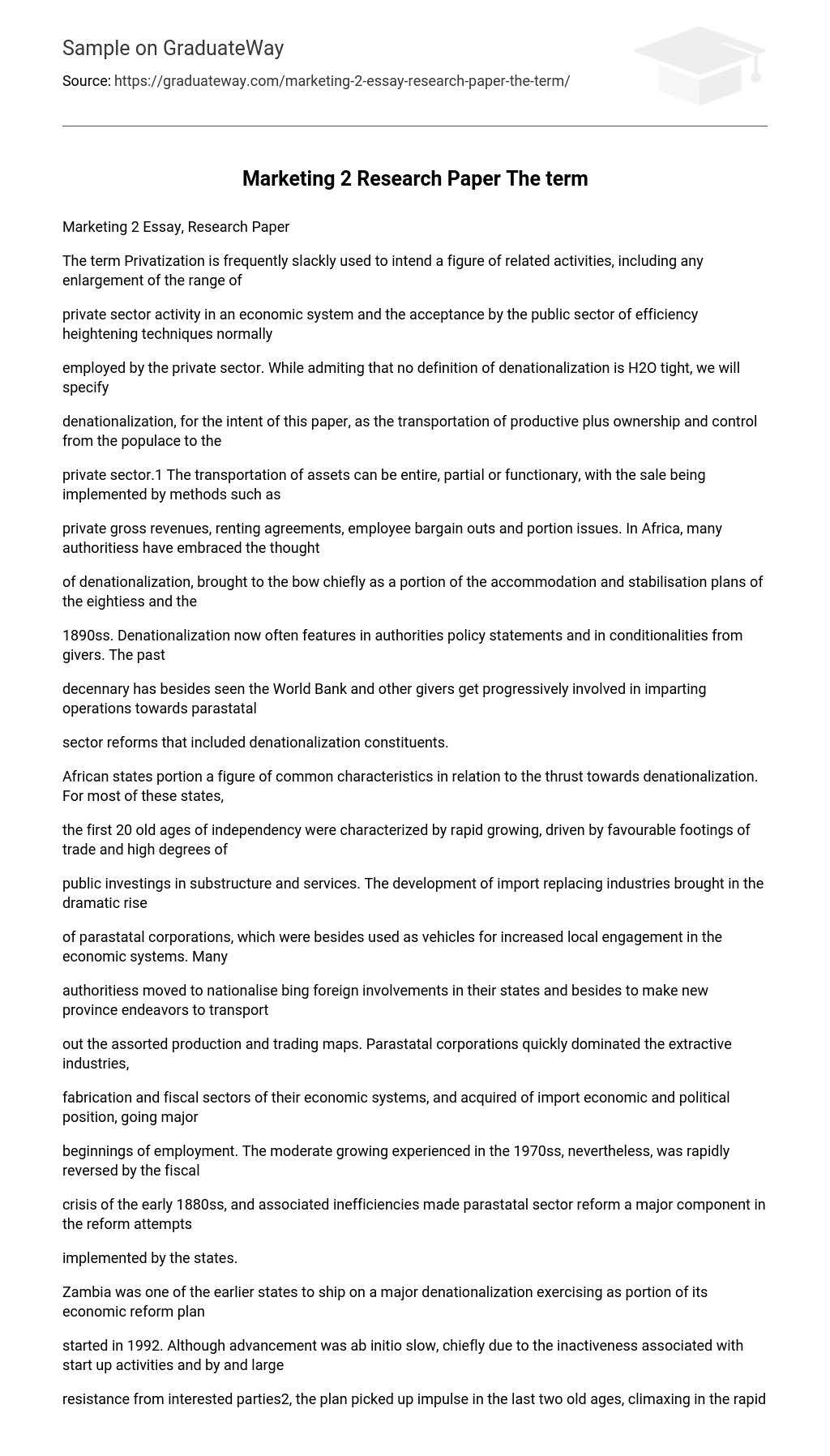Marketing 2 Essay, Research Paper
The term Privatization is frequently slackly used to intend a figure of related activities, including any enlargement of the range of
private sector activity in an economic system and the acceptance by the public sector of efficiency heightening techniques normally
employed by the private sector. While admiting that no definition of denationalization is H2O tight, we will specify
denationalization, for the intent of this paper, as the transportation of productive plus ownership and control from the populace to the
private sector.1 The transportation of assets can be entire, partial or functionary, with the sale being implemented by methods such as
private gross revenues, renting agreements, employee bargain outs and portion issues. In Africa, many authoritiess have embraced the thought
of denationalization, brought to the bow chiefly as a portion of the accommodation and stabilisation plans of the eightiess and the
1890ss. Denationalization now often features in authorities policy statements and in conditionalities from givers. The past
decennary has besides seen the World Bank and other givers get progressively involved in imparting operations towards parastatal
sector reforms that included denationalization constituents.
African states portion a figure of common characteristics in relation to the thrust towards denationalization. For most of these states,
the first 20 old ages of independency were characterized by rapid growing, driven by favourable footings of trade and high degrees of
public investings in substructure and services. The development of import replacing industries brought in the dramatic rise
of parastatal corporations, which were besides used as vehicles for increased local engagement in the economic systems. Many
authoritiess moved to nationalise bing foreign involvements in their states and besides to make new province endeavors to transport
out the assorted production and trading maps. Parastatal corporations quickly dominated the extractive industries,
fabrication and fiscal sectors of their economic systems, and acquired of import economic and political position, going major
beginnings of employment. The moderate growing experienced in the 1970ss, nevertheless, was rapidly reversed by the fiscal
crisis of the early 1880ss, and associated inefficiencies made parastatal sector reform a major component in the reform attempts
implemented by the states.
Zambia was one of the earlier states to ship on a major denationalization exercising as portion of its economic reform plan
started in 1992. Although advancement was ab initio slow, chiefly due to the inactiveness associated with start up activities and by and large
resistance from interested parties2, the plan picked up impulse in the last two old ages, climaxing in the rapid divestiture
of public endeavors that many have compared merely to denationalization plans in eastern Europe. This paper reviews the
denationalization plan in Zambia, foregrounding the major tools and mechanisms employed, and the accomplishments and restraints
faced by the governments in privatising one of the largest public sectors in Africa. The paper begins with a brief overview of the
chief economic issues environing moves towards denationalization of public endeavors.





